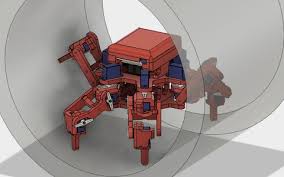
The Engineering and Physical Sciences Research Council (EPSRC) is funding a multi-university research programme involving Sheffield, York and Cambridge universities.
Also a pilot manufacturing facility, to be based at Leeds, will develop the materials needed for the new class of “photonic integrated circuits”.
An advanced materials production technology developed at Leeds, called Ultrafast Laser Plasma Implantation (ULPI), will build the materials required for the new chips.
ULPI uses high-powered, short-pulsed lasers to generate highly energetic plasma from a target material, says the university. This is then implanted into another material. It can, for instance, implant a target glass with erbium – the ion largely responsible for high speed Internet – into silica glass. This creates a modified surface layer with markedly different properties to its individual components.
“This is applied research; we are being funded as a manufacturing project. Many of the concepts have already been demonstrated in the lab and this backing will allow us to manufacture on a sufficient scale to prove the commercial readiness of the technology,” said Professor Gin Jose, of the Institute for Materials Research in the University of Leeds’ Faculty of Engineering. “This will allow Leeds to become the hub of this emerging technology.”
See also: All-optical systems and the promise of super-fast computers
 Electronics Weekly Electronics Design & Components Tech News
Electronics Weekly Electronics Design & Components Tech News


